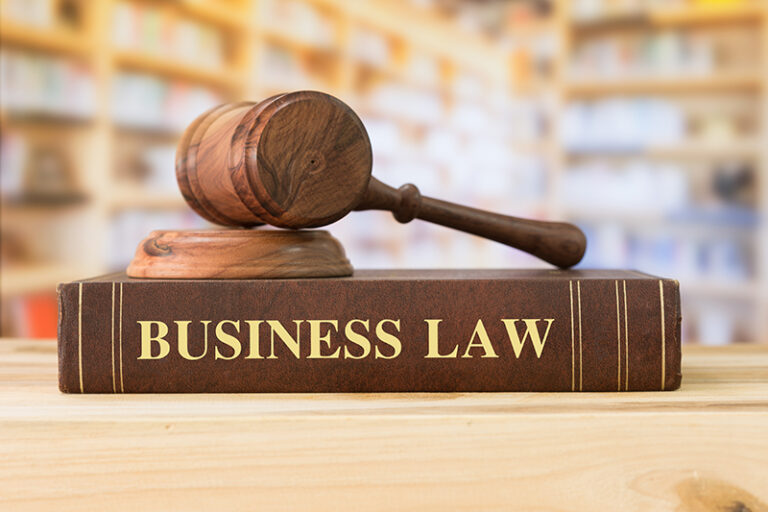When you’re in a legal case, especially a personal injury case, you’ll hear the word “deposition” a lot. But what is a deposition and why is it so important? Deposition testimony is a big part of the discovery process where witnesses testify outside of the courtroom. This can shape the direction of your case and the outcome.
In this post, we’ll break down what a deposition is, why it’s a big deal, and how working with a knowledgeable Douglasville personal injury lawyer can help you prepare and navigate through this part of your case.
What is a Deposition in the Discovery Process?
A deposition is a key tool in the legal process, used to get testimony and evidence before trial. It allows both sides in a lawsuit to understand the facts of the case, preserve witness testimony, and assess the strengths and weaknesses of each side’s arguments during the discovery proceeding. In Georgia depositions are a part of the discovery process in civil cases.
Fact Gathering
The purpose of a deposition is fact-gathering. Attorneys use this opportunity to ask witnesses questions under oath to get details about the case. They may also issue requests for relevant documents, such as medical records or police reports, to support their case and facilitate settlements. This helps both sides clarify what happened and get information that may not have been known before. Depositions are especially important in complex cases where you need to know everything.
Preserving Testimony
Depositions also preserve testimony for use in court. If a witness can’t make it to trial or if you need to reference their testimony, the written transcript of the recorded deposition is a reliable version of what they said. So important information isn’t lost over time and can be used at trial.
Assessing Witness Credibility
Another purpose of a deposition is for opposing counsel to assess the credibility of a witness. Attorneys watch how witnesses respond to questions, body language, tone, and consistency of their answers. This helps them figure out how the witness will do at trial and if their testimony will help or hurt their case.
Case Strategy
Depositions are a big part of the strategy of a legal case. The information gathered during depositions often guides how attorneys approach settlement negotiations or trial preparation. Based on what’s learned, legal strategies may be adjusted to address weaknesses or leverage strengths found during the deposition process.
Georgia’s Legal Framework
Depositions in Georgia are governed by specific rules of civil procedure that ensure fairness and order in the discovery process. These rules are found in O.C.G.A. §9-11-30 which covers depositions in civil cases. Everyone involved in litigation should know these rules.
Statutory Basis
In Georgia, the rules for depositions are found in O.C.G.A. §9-11-30 which is part of the Georgia Civil Practice Act. The federal rules, specifically the Federal Rules of Civil Procedure, also set guidelines on the maximum duration of depositions, limiting them to seven hours per day for each deponent. This statute outlines how depositions must be conducted including who must be notified, where the deposition will be held, and the rights of the parties involved. It ensures everyone knows their obligations and protections during the deposition process.
Notice Requirements
One of the key provisions of Georgia’s deposition rules is the notice requirement. All parties in the lawsuit must be given written notice of the deposition including time, place, and who is being deposed. This gives everyone time to prepare and the deposition will be conducted in an orderly and fair way.
Location, Travel Limits, and Maximum of Seven Hours
Georgia law also limits where a witness can be required to travel for a deposition. Under O.C.G.A. §9-11-30 a witness can’t be forced to travel more than 150 miles from their residence or place of employment. This protects witnesses from unreasonable demands and ensures depositions are held in a convenient location.
Compulsion and Subpoenas
If a witness refuses to attend a deposition, Georgia law allows for the use of subpoenas to compel their attendance. A subpoena is a legal document that requires a witness to appear at a certain time and place to testify. Failure to comply with a subpoena can result in penalties including fines or contempt of court charges. Additionally, making false statements during a deposition can lead to severe civil and criminal penalties. So depositions can move forward even if a witness doesn’t want to participate.
Objections and Protections
During a deposition, the deponent or their attorney can object to certain questions or evidence based on court rules. Georgia’s rules allow those objections to be noted on the record but the deponent is still required to answer the question. These protections help protect the rights of the witness while allowing the discovery process to move forward without delay.
Why You Might Be Deposed
A deposition is a part of the discovery process in civil litigation and there are several reasons why you’ll be deposed. Whether you’re a party to the lawsuit or a witness your testimony is important to the case. Knowing why you’ll be deposed will help you prepare and give your testimony.
Key Witness in the Case
If you have direct knowledge of the facts of the case you’ll be deposed. This could be being involved in an accident, witnessing a key event, or having information that is relevant to one side’s claims or defenses. Your deposition allows both sides to get information and clarify the facts of the case which is important for trial preparation.
Involvement in a Personal Injury or Workers’ Compensation Case
In personal injury and workers’ comp cases depositions are used to get the details of the incident, the extent of the injuries and the impact on the claimant’s life. If you’re the plaintiff in such a case your deposition will help the defense determine the validity of your claims and get evidence to challenge them. If you’re the defendant or a third party to the accident or injury you may be deposed.
Providing Expert Testimony
In some cases, you may be deposed as an expert witness. If you have specialized knowledge such as medical knowledge or technical knowledge related to the case your testimony can help clarify complex issues. Expert witnesses are often called upon to explain evidence, give professional opinions, and offer insights the court may not have otherwise.
Supporting or Challenging Claims
Another reason you’ll be deposed is if your testimony can support or challenge the claims of either side. For example, if your observations can verify the plaintiff’s claims or if you have evidence that contradicts the defendant’s defense both sides will want to hear your testimony. Your deposition will help attorneys develop their case strategy by knowing what can be proven or disproven.
What Happens During a Deposition?
A deposition is a formal process where a witness gives sworn testimony outside of the courtroom. According to the Federal Rules of Civil Procedure, a deposition is limited to a maximum of seven hours per day for each deponent. It’s structured, follows specific rules and is a part of the trial preparation process. Knowing what happens during a deposition will help you understand the process and be prepared for your role.
The Setting
Depositions usually take place in an attorney’s office, a court reporter’s office, or virtually through video conferencing. While the setting is less formal than a courtroom the testimony given during a deposition is just as binding as if it were given in court. Present at the deposition will be the deponent, the attorneys for both sides, and a court reporter.
Introduction and Ground Rules
The attorney conducting the deposition will introduce themselves and explain the basic ground rules. The deponent will then be placed under oath by the court reporter and swear to tell the truth. The attorney will then explain how the deposition will proceed and remind the deponent to answer the questions clearly and truthfully. Listen carefully and only answer the questions asked.
Questioning
The majority of the deposition is questioning. The attorney for the other side will ask a series of questions to get facts, clarify details, and test the witness. The questions will start with broad topics such as background information and then get more specific to the case. The deponent will answer each question unless there is a valid legal objection.
Objections and Legal Protections
During a deposition, the deponent’s attorney may object to a question if it’s improper or irrelevant. However, unlike in a courtroom, the objection is just noted for the record and the deponent will usually have to answer the question. There are some exceptions such as questions that ask for privileged information. These objections can be reviewed by a judge if the case goes to trial.
The Court Reporter’s Role
A court reporter is present throughout the deposition to record every word spoken by the attorneys and the deponent. The transcript will be an official record and can be used at trial. The accuracy of the deposition transcript is important so the deponent should speak clearly and not talk over others.
End of Deposition
Once all questions are asked the deposition is over. The deponent may be given the opportunity to review the transcript and make changes if needed. The testimony given in the deposition can be used in court to support the case or to impeach the witness.
Contact an Experienced Douglasville Personal Injury Attorney Today!
If you’re facing a deposition or any other legal challenge in your personal injury case, don’t go through it alone. Our team at Hartley, Rowe, & Fowler is here to provide expert guidance and support every step of the way.
Contact us at 678-825-6004 for a free case review today!







